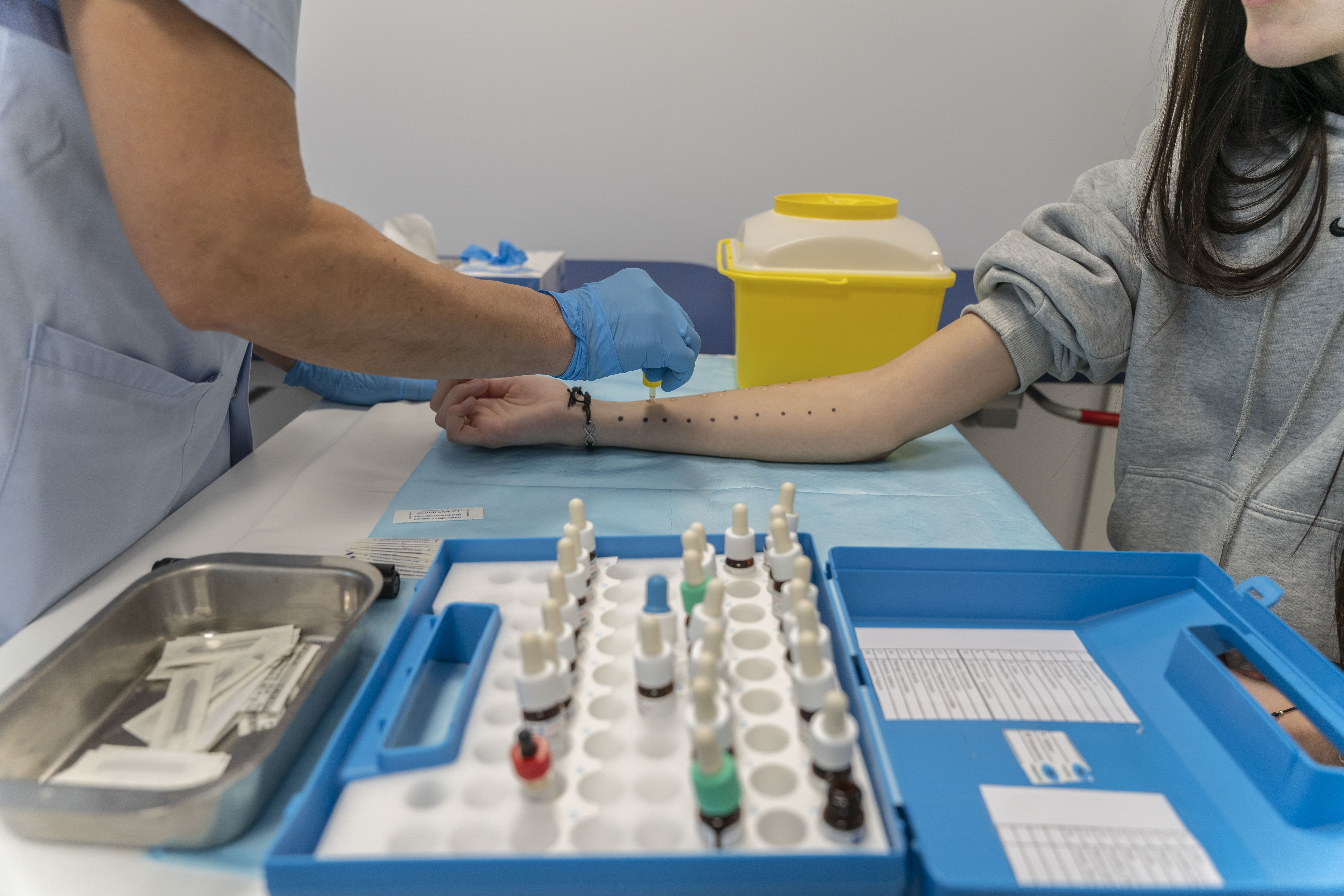Allergy vaccines are becoming more popular

Pilar Palazuelos |
Torrelavega (EFE).- Immunotherapy is an increasingly common approach to the treatment of allergies, since it allows to fight them from the inside and at the root, modify the course of the disease and control intense symptoms that do not respond to other treatments, with an indication to increase in order to avoid the occurrence of serious complications.
“Fortunately, treatment methods are developing simultaneously with the development of pathologies,” he emphasizes. In an interview with EFE, Aurora Gutiérrez, an allergist at the Sierrallana Hospital in Torrelavega.
He explains that there is now an important range of biological drugs to treat the most serious cases of asthma, atopic dermatitis or urticaria, “which are sometimes very disabling pathologies.”
In addition, immunotherapy is a very useful tool in allergology, he emphasizes.
“We have been using this type of vaccine for many years, and they are also being updated as more is known about the mechanisms of allergies,” warns the specialist, adding that allergy symptoms can be stopped or controlled this way. allergies and prevent the development of the disease.
“Allergy vaccines,” according to this doctor, are intended for cases where symptoms are very intense despite adequate symptomatic treatment, although “this attitude is changing and their indications are expanding in some patients, such as children.”
“In children with allergic rhinoconjunctivitis, we try to start it earlier, because we have seen that in some cases the onset of allergic asthma can be avoided,” he comments.
Critical time
This spring time of year is difficult, especially for patients with pollen allergies. Dr. Gutierrez explains that rains help clear the atmosphere, but if a mostly dry and warm spring finally arrives, there will be a large pollen load in the environment, and atmospheric pollution will join the latter.
This convergence of factors makes environmental particles more aggressive and causes more inflammation of the airways, as well as more problems for people with allergies.

More patients
In consultations with allergists, a significant increase in the referral of new patients is noted, and also in those under observation there is a deterioration in symptom control, which requires adjustments in treatment.
Typically, the symptoms observed in these patients are sneezing, runny nose, watery eyes, itchy nose and eyes, and difficulty breathing due to allergic asthma. Other patients may also experience flare-ups of urticaria or exacerbation of underlying atopic dermatitis.
Patients are advised to consult a specialist when all of these symptoms impair their quality of life. In these cases, they may benefit from getting an allergy test to learn a little about what’s going on and to guide treatment.
30%, with allergies
The prevalence of allergies has increased and it is now estimated that 30% of the Spanish population has some kind of problem. “As specialists, we have a feeling that this percentage is increasing,” says Gutierrez, who considers allergies a “major public health problem.”
He also believes that more and more people are aware of allergy issues as they affect quality of life.
The rise in the number of people with allergies is due to “multiple factors” and is a phenomenon that is “continuously being researched”. “We as experts are very interested,” says Gutierrez, citing studies that confirm “that certain factors are behind this increase, such as climate change, pollution, sedentary lifestyle or smoking.”
When a patient comes for a consultation with an allergist, the first step is to conduct an interview. You are asked several questions that classify the type of problem and plan the investigation. Tests are carried out on the skin of the forearms with multiple food and environmental allergens and by testing it is possible to find out which substances are causing the patient’s clinical situation.
Blood tests are also needed to perform molecular diagnostics, which involve specifically identifying the allergen proteins that are causing a patient’s problem, allowing for “precision medicine.”
Other tests can be done, such as spirometry, which is used to measure breathing capacity and determine whether it is affected or not.
